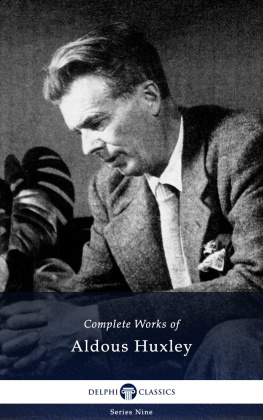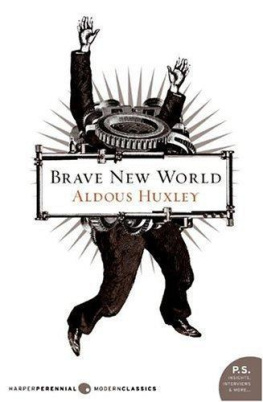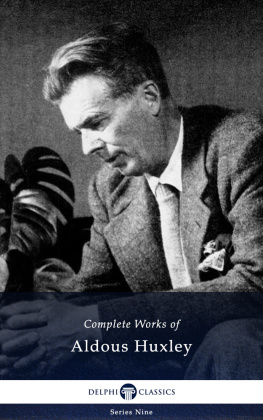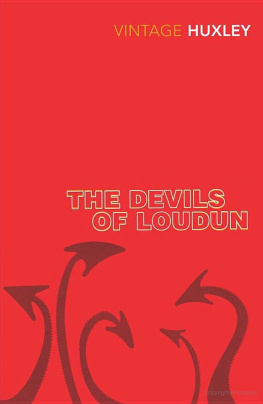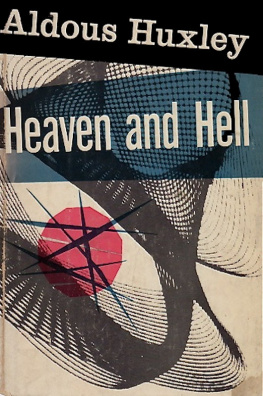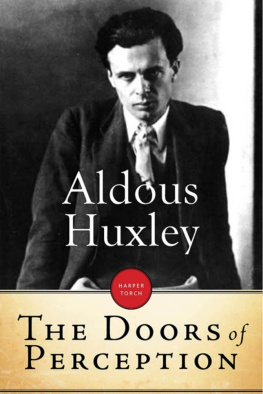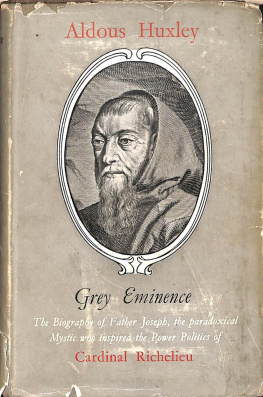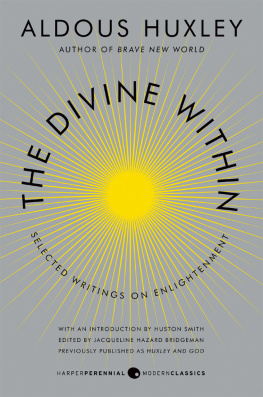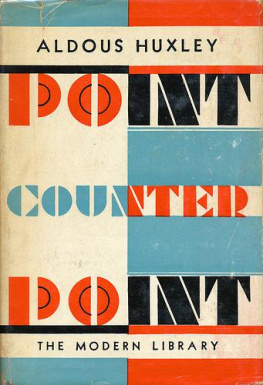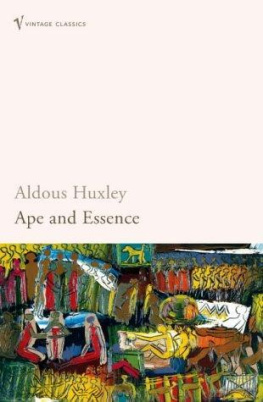The Complete Works of
ALDOUS HUXLEY
(1894-1963)

Contents

Delphi Classics 2018
Version 1


Browse our Main Series

Browse our Ancient Classics

Browse our Poets

Browse our Art eBooks

Browse our Classical Music series

The Complete Works of
ALDOUS HUXLEY

By Delphi Classics, 2018
COPYRIGHT
Complete Works of Aldous Huxley

First published in the United Kingdom in 2018 by Delphi Classics.
Delphi Classics, 2018.
All rights reserved. No part of this publication may be reproduced, stored in a retrieval system, or transmitted, in any form or by any means, without the prior permission in writing of the publisher, nor be otherwise circulated in any form other than that in which it is published.
ISBN: 9781786561152
Delphi Classics
is an imprint of
Delphi Publishing Ltd
Hastings, East Sussex
United Kingdom
Contact: sales@delphiclassics.com

www.delphiclassics.com
Interested in modernist literature?
Then youll love these eBooks

For the first time in publishing history, Delphi Classics is proud to offer the complete works of these modernist writers.
Explore Modernist Literature
The Novels

Huxley was born in Godalming, Surrey, on 26 July 1894
Crome Yellow

As a young boy he was taught by his mother, but after she became ill, he attended Eton College and then graduated from Oxford University in 1916. He had attempted to join the British Army at the start of 1916, but had been rejected due to his severely impaired vision. After graduation, he took a position at the Air Ministry before acquiring a teaching position at Eton for a year. One of his students was George Orwell, who considered Huxley an incompetent teacher in many regards, but commended him for his excellent mastery of French. Towards the end of the First World War, Huxley worked for Lady Ottoline Morrell at Garsington Manor, where he encountered members of the Bloomsbury Group, which included Virginia Woolf, Clive Bell, Duncan Grant and John Maynard Keynes.
Crome Yellow was first published in Britain by Chatto and Windus in 1921. It was the authors debut novel, although he had completed an unpublished book when he was only seventeen years old. It centres around a young poet, Denis Stone, who is searching for literary validation from more experienced writers. He visits Crome Yellow, a manor, where an array of authors and artists gather to socialise and network. The book is satirical and takes aim at those Huxley knew from his time at Garsington Manor. He creates a host of amusing and ridiculous characters that typified the self-obsession of the literary scene at that time, such as Priscilla Wimbush, who is an obvious depiction and mockery of Lady Ottoline Morrell.

The first edition
CONTENTS

Lady Ottoline Morrell

Bloomsbury Group members left to right: Lady Ottoline Morrell, Maria Nys, Lytton Strachey, Duncan Grant and Vanessa Bell
CHAPTER I.

A LONG THIS PARTICULAR stretch of line no express had ever passed. All the trains the few that there were stopped at all the stations. Denis knew the names of those stations by heart. Bole, Tritton, Spavin Delawarr, Knipswich for Timpany, West Bowlby, and, finally, Camlet-on-the-Water. Camlet was where he always got out, leaving the train to creep indolently onward, goodness only knew whither, into the green heart of England.
They were snorting out of West Bowlby now. It was the next station, thank Heaven. Denis took his chattels off the rack and piled them neatly in the corner opposite his own. A futile proceeding. But one must have something to do. When he had finished, he sank back into his seat and closed his eyes. It was extremely hot.
Oh, this journey! It was two hours cut clean out of his life; two hours in which he might have done so much, so much written the perfect poem, for example, or read the one illuminating book. Instead of which his gorge rose at the smell of the dusty cushions against which he was leaning.
Two hours. One hundred and twenty minutes. Anything might be done in that time. Anything. Nothing. Oh, he had had hundreds of hours, and what had he done with them? Wasted them, spilt the precious minutes as though his reservoir were inexhaustible. Denis groaned in the spirit, condemned himself utterly with all his works. What right had he to sit in the sunshine, to occupy corner seats in third-class carriages, to be alive? None, none, none.
Misery and a nameless nostalgic distress possessed him. He was twenty-three, and oh! so agonizingly conscious of the fact.
The train came bumpingly to a halt. Here was Camlet at last. Denis jumped up, crammed his hat over his eyes, deranged his pile of baggage, leaned out of the window and shouted for a porter, seized a bag in either hand, and had to put them down again in order to open the door. When at last he had safely bundled himself and his baggage on to the platform, he ran up the train towards the van.
Next page
